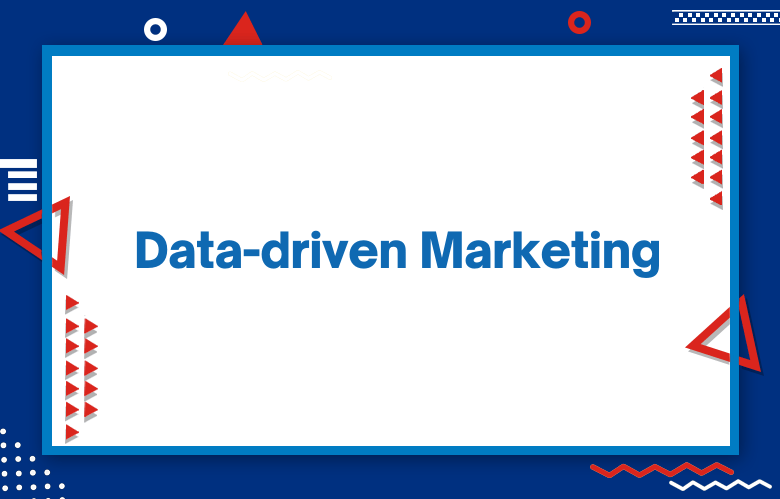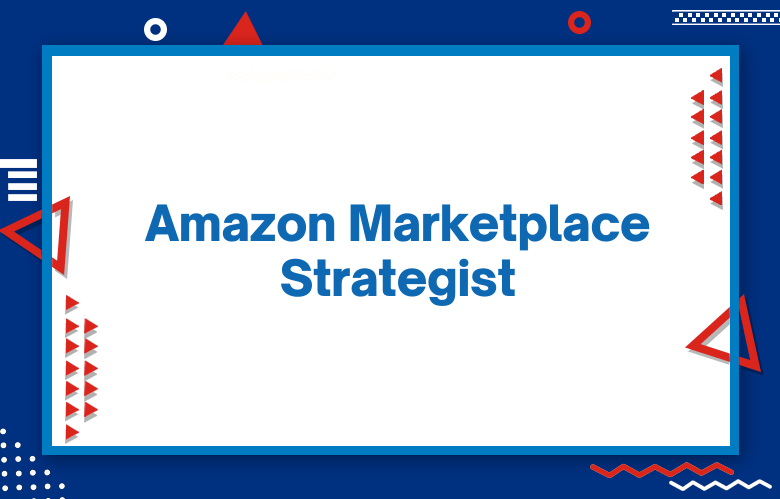Data-driven marketing: How to generate leads and increase conversions with data optimization

Marketing is an art; like any other art, it requires skill and creativity. Data-driven marketing, on the other hand, is a science. Data-driven marketers use data to understand their customer’s behavior to deliver personalized content that will generate leads and increase conversions for their business.
Data optimization helps companies prioritize which messages are most important to send out based on what has been working in the past. This blog post will discuss how data-driven marketing can help you generate leads and increase your conversion rate!
Benefits of Data-driven Marketing
Data optimization helps businesses prioritize the most critical messages based on past work. This blog post will discuss how data-driven marketing can help you generate leads and increase your conversion rate!
The Future of Data Optimization
Data-driven marketers use data to understand their customers’ behavior and deliver personalized content that generates leads and increases conversions for their business.
Data optimization helps companies prioritize which messages are most important to send out based on what has been working in the past. This blog post will discuss how data-driven marketing can help you generate leads and increase your conversion rate!
When Data-driven Marketing Works
Data optimization helps businesses prioritize the most critical messages based on past work. This blog post will discuss how data-driven marketing can help you generate leads and increase your conversion rate!
Data Optimization Challenges
Data-driven marketers use data to understand their customers’ behavior and deliver personalized content that generates leads and increases conversions for their business.
Data optimization helps companies prioritize which messages are most important to send out based on what has been working in the past. This blog post will discuss how data-driven marketing can help you generate leads and increase your conversion rate!
Best Data Optimization Practices
Data-driven marketers use data to understand their customers’ behavior and deliver personalized content that generates leads and increases conversions for their business.
Data optimization companies’ businesses prioritize which messages are most important to send out, which has been working in the past. This blog post will discuss how data-driven marketing can help you generate leads and increase your conversion rate!
Data Data Data
Data-driven marketers use data to understand their customers’ behavior and deliver personalized content that generates leads and increases conversions for their business.
Data optimization helps businesses and companies touch messages that are most important to send out based on what has been passed. Data optimization helps businesses and companies connect messages that are most important to send out based on what has been given.
This blog post will discuss how data-driven marketing can help you generate leads and increase your conversion rate!
Data-Driven Marketing
Data-driven marketers use data to understand their custom editor to deliver personalized content that will generate leads and increase conversions for their business.
Data optic companies’ top businesses prioritize which messages are most important to send out based on working in the past. Data optic companies’ top businesses prioritize which messages are most important to send and which have been working in the past. This blog post will discuss how data-driven marketing can help you generate leads and increase your conversion rate!
Different Data Analysis Tools
Data-driven marketers use data to understand their customers’ behavior and deliver personalized CTOs that generate leads and increase conversions for their businesses.
Data optimization helps businesses prioritize which message companies should send out based on what has been working.
Data optimization helps businesses prioritize which message companies should send out based on what has been working. This blog post will discuss how data-driven marketing can help you generate leads and increase your conversion rate!
Data Analysis Examples
Data-driven marketers use data to understand their customer’s behavior to deliver personalized content that will generate leads and increase conversions for their business. Data optimization helps companies prioritize which messages are most important to send out based on what has been working in the past.
Data optimization allows companies to prioritize the most critical messages based on past work. This blog post will discuss how data-driven marketing can help you generate leads and increase your conversion rate!
Advantages of Data-driven marketing
- Data-driven marketing is more cost-effective
- It’s easier to track your return on investment
- You can measure what works and doesn’t work much better than other marketing types, like traditional advertising or word of mouth.
- You’ll have a better idea of who your target audience is
- It’s cheaper than traditional marketing because it’s less expensive for a business owner or marketer
- Personalized content based on customer preferences will increase the likelihood of conversion
- It’s easier to measure ROI with data-driven marketing because it gives you insights into what your customers are interested in and how they behave online
- With data-driven marketing, you can make decisions faster and get better results
- You’ll have access to powerful tools that help you analyze information
- Data-driven marketing is a more efficient way to market your product or service
- It takes less time and money than traditional marketing methods, such as word-of-mouth
- Data-driven marketing can be tailored to the specific needs of each customer
- It’s cheaper for companies because they have access to all the information about their customers
- Data-driven marketing can be used to identify and target customers
- It allows marketers to use data, such as customer preferences and behaviors, to make predictions about what will happen in the future
- Data-driven marketing can help companies create a personalized experience for their customers that is more relevant than ever before
- A company’s ability to improve its products based on consumer feedback is also enhanced by data-driven marketing
- Data-driven marketing is a powerful tool for building customer loyalty
- It provides you with the ability to make informed decisions about your business based on data analysis
- Data-driven marketing helps you better understand your customers and their needs
- Utilizing this strategy will also help you increase sales by targeting potential customers through ads that they’re most likely to respond well to
- Data-driven marketing allows you to target the people most likely to buy your product
- You can use data from past customers and their actions on your site to predict what they will do in the future
- It’s cheaper than traditional advertising, which often relies on expensive TV or radio ads
- Companies get a better idea of how well their products are doing because they have more information about them
- Data-driven marketing is a strategy that focuses on the customer
- It provides more accurate targeting of customers and increases your return on investment
- Customers are more likely to respond positively to data-driven marketing because it’s personalized for them
- It helps companies better understand their customers
- Data-driven marketing is a way to create campaigns that are personalized and more relevant to your customers
- More data means better results, as you can collect information about customer preferences and behaviors without having to guess
- It’s easier to track the success of your marketing campaigns with data-driven methods because you’ll know exactly what works and what doesn’t
- You can get valuable insights into consumer behavior, which will help you understand how they think and why they behave in specific ways
- Data-driven marketing is more targeted
- It’s less expensive when compared to other types of marketing
- It can predict the behavior of customers and increase sales conversions
- It allows companies to focus on their most profitable products and services
- In the age of digital data, it has never been easier for marketers to track consumer trends
- Data-driven marketing is a way to measure your marketing efforts and determine what works best
- The data you collect can be used to make decisions about how to allocate resources, where to focus attention, and which channels are most effective
Data-driven marketing Trends
- Data-driven marketing has become a necessity in the digital age
- Increasingly, companies are using data to make decisions about their products and services
- The rise of AI is also contributing to the growth of data-driven marketing
- For these strategies to work well, marketers must understand how customers use different devices and channels
- Consumers are more aware of the brands they support due to social media and other online platforms
- Consumer data is being used in marketing strategies, such as targeting specific demographics with tailored content that is relevant to them
- Marketing budgets have shifted from traditional advertising models to digital ad campaigns
- Personalization – tailoring messaging to the individual user’s needs and preferences
- Mobile-first marketing – ensuring your site is mobile-friendly, with a responsive design and content that loads quickly on all devices
- Multi-channel marketing – using various social media platforms to engage customers in conversations about your brand or product to increase awareness
- Content Marketing – creating valuable content for your target audience, such as blog posts on relevant topics or infographics that summarize key points
- Data-driven marketing is a way to measure the success of your advertising and how well it reaches its intended target audience
- It helps marketers understand what ads are more effective, which can lead to higher conversion rates for those ads
- Data-driven marketing includes metrics like cost per click, return on investment, and conversion rate
- Marketers need to use data to stay ahead of their competition
- Data-driven marketing has been around for a while
- It’s not just about the data but also understanding its meaning and how to use it.
- Marketing is now more personalized than ever before because of data-driven strategies.
- Marketers must keep up with the latest trends and developments to make sense of this new world.
- Targeting users on social media platforms
- Using video in marketing campaigns
- Integrating augmented reality into customer experiences
- Personalizing the shopping experience with data-driven insights
- Consumers are more likely to share their information with brands they have a relationship with
- Targeting
- Gamification
- Mobile Marketing
- Digital Marketing Automation
- Social media marketing is more than just posting on Facebook and Twitter
- It’s essential to use hashtags, post images with captions, and interact with your followers
- Email marketing is still a great way to reach the people who are interested in what you have to offer
- Content marketing- creating blog posts about topics related to your industry- can be a good way of increasing traffic by linking back to your site
- Make sure that you’re using analytics tools like Google Analytics and Shopify reporting so that you know how successful your campaigns are
- Make sure your marketing efforts are data-driven
- Use analytics to understand customer behavior and interests
- Invest in content that is relevant and engaging
- Track the ROI of each marketing campaign
- Snapchat is the fastest-growing social media platform
- The number of people using Instagram Stories has surpassed that of Snapchat’s total user base
- Mobile search will continue to grow, as it already accounts for 50% of all digital searches
Data-driven marketing Challenges
- Many challenges come with data-driven marketing, including:
- The time and effort needed to collect and analyze data.
- Figuring out what metrics are essential for your business model
- Understanding which tools will work best for you
- The types of data used in marketing campaigns are varied and include customer demographics, location, time spent on website pages, purchase history, and more.
- The challenge of generating leads
- The challenge of converting those leads to customers
- The challenge of retaining customers and providing them with a great customer experience
Conclusion
The data-driven marketing approach can change everything, from how you design your website and product packaging to who you market them towards. We can help with those things for a fraction of what agencies charge.
Most companies that have adopted data-driven marketing have seen an increase in revenue. How much of your company’s efforts are currently data-driven? If you want to start seeing a measurable difference, it may be time to take action and incorporate more data into your digital strategy.
With so many data sources and advertising channels available, it’s easy to get overwhelmed with the amount of information that needs processing. Read on for tips on what works best when analyzing marketing data and some ideas on where you might find additional resources if this is something new or unfamiliar territory. You’ll be an expert in no time!
Call: +91 9848321284
Email: [email protected]



